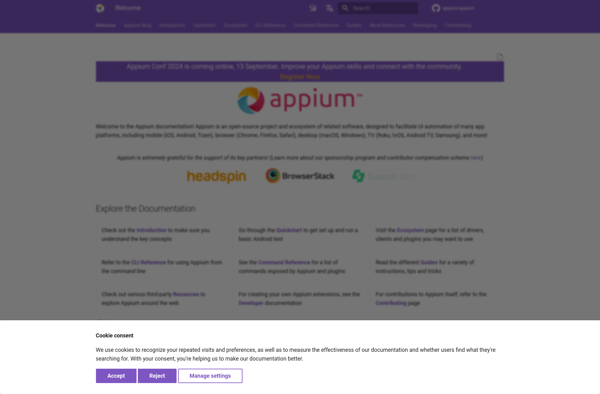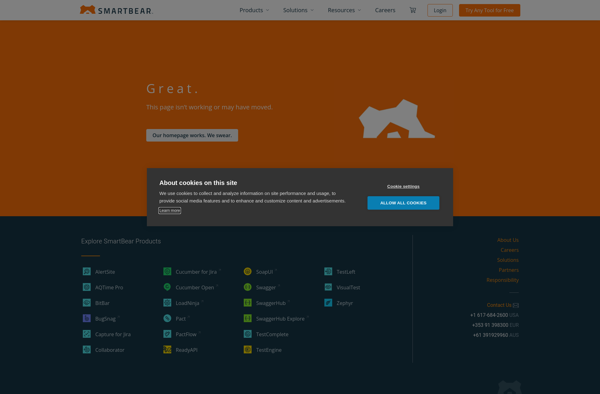Description: Appium is an open source test automation framework for mobile apps. It allows you to automate tests on native, hybrid and mobile web apps for iOS and Android using Selenium WebDriver API.
Type: Open Source Test Automation Framework
Founded: 2011
Primary Use: Mobile app testing automation
Supported Platforms: iOS, Android, Windows
Description: TestComplete is an automated testing tool used by software testers and developers to test desktop, web, and mobile applications. It supports a range of testing methodologies and allows for creating automated UI tests without scripting.
Type: Cloud-based Test Automation Platform
Founded: 2015
Primary Use: Web, mobile, and API testing
Supported Platforms: Web, iOS, Android, API

